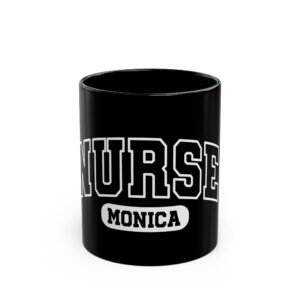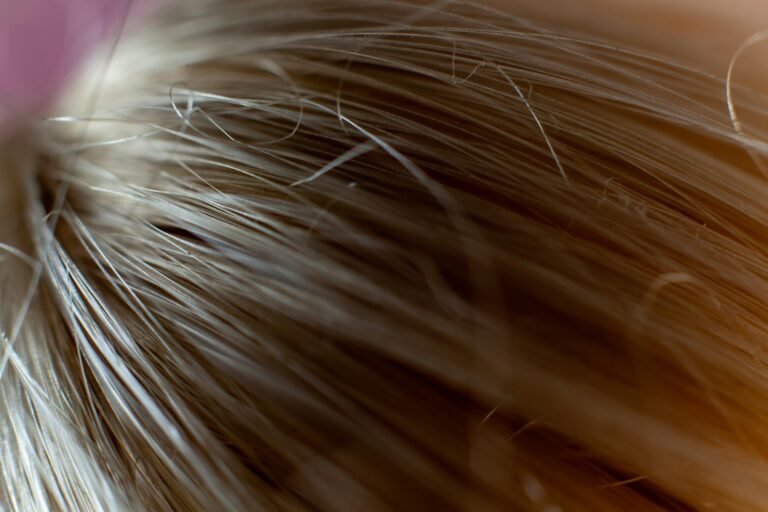Becoming a mother is a beautiful, transformative journey filled with joy, exhaustion, and endless love—but it can also bring unexpected changes to your body, including one many new moms dread: postpartum hair loss. If you’ve found strands falling out in the shower or noticed your once-lush mane looking thinner, you’re not alone. This experience can feel overwhelming, a reminder that your body is still healing and adjusting after the miracle of childbirth. But understanding why this happens and learning how to nurture your hair back to health can empower you to embrace this phase with patience and hope. In this article, we’ll explore the science behind postpartum hair loss and share gentle, effective ways to restore your strands—and your confidence—in the months after baby’s arrival.
Table of Contents
- What Causes Postpartum Hair Loss and Why It Feels So Overwhelming
- The Emotional Rollercoaster of Losing Your Hair After Baby
- Nourishing Your Scalp and Hair: Gentle Care Tips That Really Work
- Healing From Within: Essential Nutrients to Restore Your Hair’s Strength and Shine
- The Conclusion
What Causes Postpartum Hair Loss and Why It Feels So Overwhelming
After giving birth, many new moms encounter an unexpected and distressing wave of hair shedding that can feel like a personal battle against time and self-image. This phenomenon is largely driven by the dramatic hormonal shifts occurring in your body—especially the rapid decline in estrogen levels that previously kept your hair in its lush, growth-focused phase during pregnancy. As these protective hormones take a nosedive, hair follicles suddenly transition into the resting phase and then promptly shed, leading to noticeable thinning. It’s not just biology at play; the emotional weight of adjusting to motherhood combined with physical exhaustion only magnifies the feeling of loss, making it more than just a cosmetic concern.
Moreover, the sheer volume of hair falling out all at once can be shocking and deeply unsettling. The postpartum period brings with it an overload of changes, and seeing hair strands everywhere—from your brush to your pillow—can evoke feelings of vulnerability and frustration. Remember, this is a natural process fueled by factors like:
- Hormonal fluctuations disrupting the hair growth cycle
- Physical stress from childbirth and recovery
- Changes in nutrition and sleep patterns impacting overall hair health
- Emotional upheaval that affects bodily functions, including hair growth
Recognizing that postpartum hair loss is a shared experience helps soften its emotional sting. Your body is healing, adapting, and rebalancing, and with this understanding, you can approach your strands with kindness and patience instead of despair.
The Emotional Rollercoaster of Losing Your Hair After Baby
Watching your hair suddenly shed in handfuls can feel like an emotional upheaval, on top of the whirlwind of new motherhood. It’s not just about aesthetics—the strands falling out represent a significant physical shift, a vivid reminder of the intense changes your body has endured. Many women find themselves grappling with feelings of loss, frustration, and even a shaken sense of identity as they stare into the mirror, wondering if their old self will ever return. This emotional turbulence is valid and real, swirling in the background of sleepless nights and diaper changes.
Embracing healing means tuning into your body with compassion and patience. Remember to:
- Celebrate small victories: Every new sprout of hair is a sign of resilience.
- Seek support: Share your feelings with friends or support groups who understand.
- Prioritize self-care: Nourish your body with good nutrition and gentle hair care routines.
Allow yourself space to grieve the change and gently remind yourself that this phase is temporary—a chapter, not a permanent state. You’re not alone in this journey, and your grace in facing postpartum hair loss reflects the strength quietly blooming beneath those strands.
Nourishing Your Scalp and Hair: Gentle Care Tips That Really Work
After the whirlwind of childbirth, your scalp needs tender love and attention to bounce back from the hormonal shifts that can leave hair feeling fragile. Start by embracing a routine that prioritizes hydration and nourishment — gentle, sulfate-free shampoos and conditioners enriched with natural oils like argan, jojoba, or coconut can work wonders. These ingredients help maintain the scalp’s moisture balance while soothing irritation. Massage your scalp regularly with your fingertips to boost circulation and encourage healthy hair growth. Remember, hands should be soft and strokes light to avoid unnecessary tension on delicate strands.
Incorporating simple lifestyle habits can dramatically improve your hair’s resilience during this sensitive phase. Think of your hair as a reflection of your inner health — a diet rich in protein, vitamins A, C, D, and especially biotin lays the groundwork for stronger, fuller strands. Avoid tight hairstyles that pull at the root, and let your hair air-dry whenever possible to reduce breakage. Here’s a quick checklist to nurture your locks gently:
- Use lukewarm water instead of hot water during washing
- Apply a weekly deep-conditioning mask, preferably one with natural ingredients
- Minimize heat styling tools or use heat protectants diligently
- Get adequate sleep to support your body’s repair processes
Healing From Within: Essential Nutrients to Restore Your Hair’s Strength and Shine
After the whirlwind of pregnancy and childbirth, your hair often bears the brunt of hormonal shifts, leaving strands weak and lifeless. Feeding your body with the right nutrients is the hidden secret to reigniting your hair’s natural strength and radiant glow. Nutrients like biotin and vitamin E boost the scalp’s circulation, encouraging healthy follicle function, while omega-3 fatty acids work wonders restoring moisture and shine from the inside out. Don’t overlook the power of iron and zinc, both playing crucial roles in cellular repair, helping to rebuild fragile strands and reduce excessive shedding.
Incorporating these nutrient-rich foods into your daily routine creates a foundation for hair resiliency that lasts. Consider adding:
- Leafy greens like spinach and kale for iron and vitamins.
- Eggs and nuts to supply biotin and healthy fats.
- Fatty fish such as salmon rich in omega-3s.
- Seeds like chia and flaxseeds for antioxidants.
Each bite nourishes your strands from root to tip, offering a gentle but powerful way to heal postpartum hair loss deeply and sustainably.
The Conclusion
Navigating postpartum hair loss can feel overwhelming, but remember—you’re not alone on this journey. Your body has just performed an incredible miracle, and while the changes can be frustrating, they’re also a sign of healing and renewal. Embrace this phase with patience and self-compassion, knowing that your strands will grow stronger and fuller in time. Cherish the beautiful moments with your little one, and let your hair’s recovery be a gentle reminder of your resilience and strength. Here’s to healing, growing, and shining through every strand.
Related Products
-
Sacheu Lip Liner Stay-N Peel Off Lip Stain — Long …
Beauty $12.00 -
Dokotoo Women’s Casual Loose Overalls Jumpsuits On…
Clothing $31.88 -
Sale!
AUTOMAN-Garden-Hose-Nozzle, ABS Water Spray Nozzle…
Home Original price was: $9.99.$8.99Current price is: $8.99.




